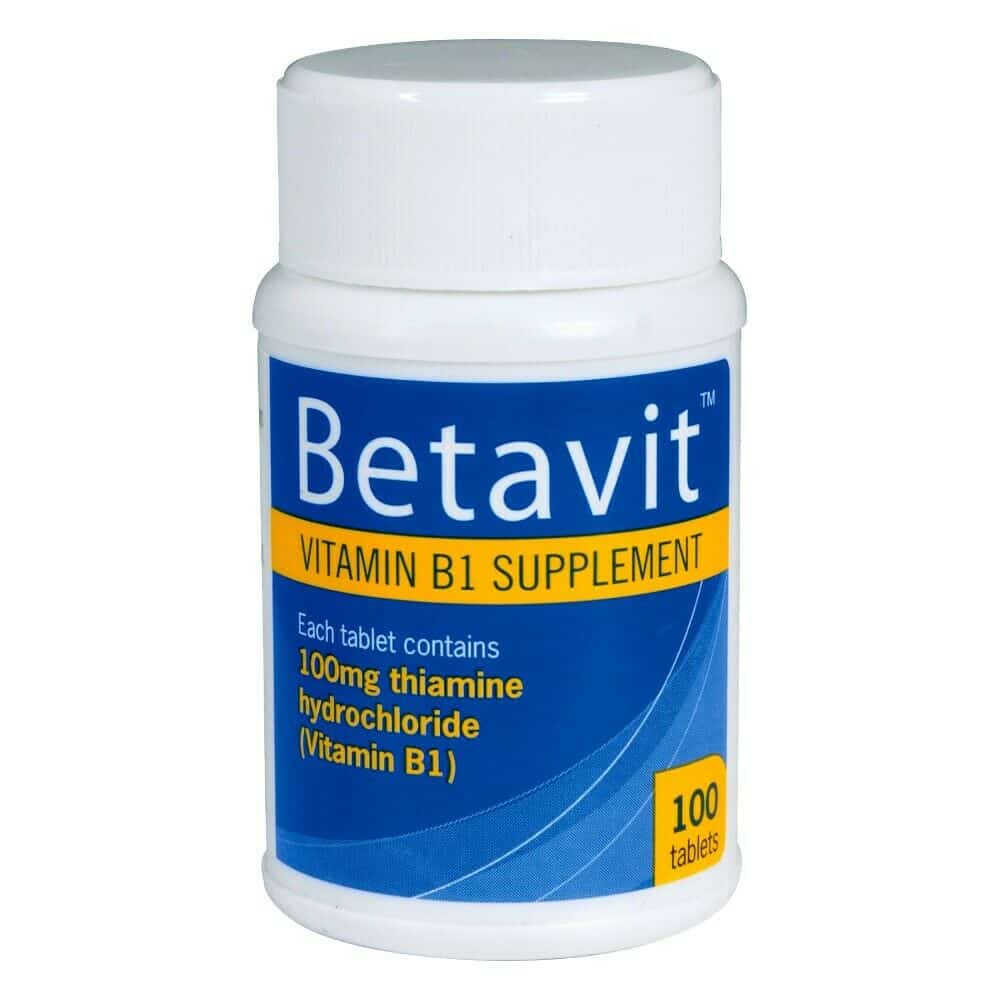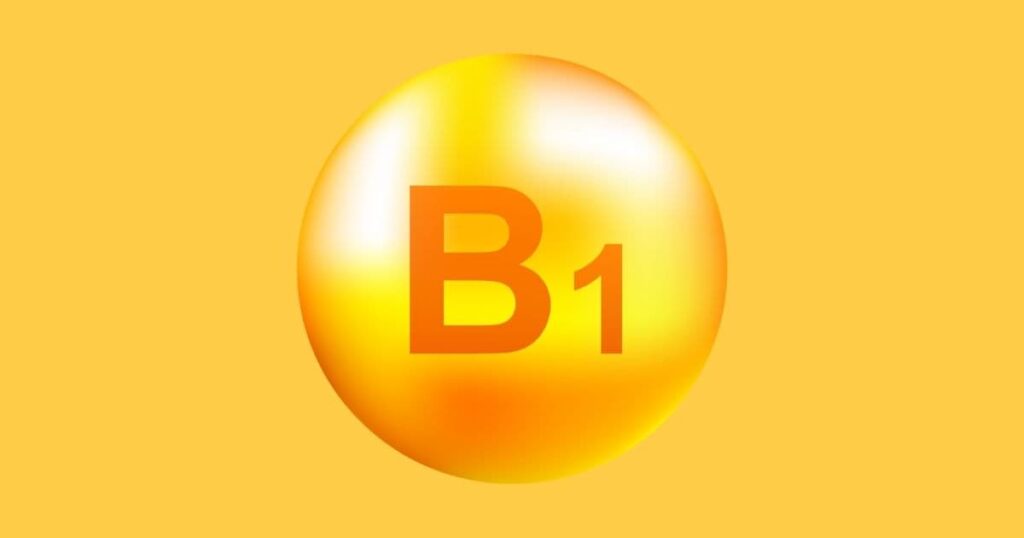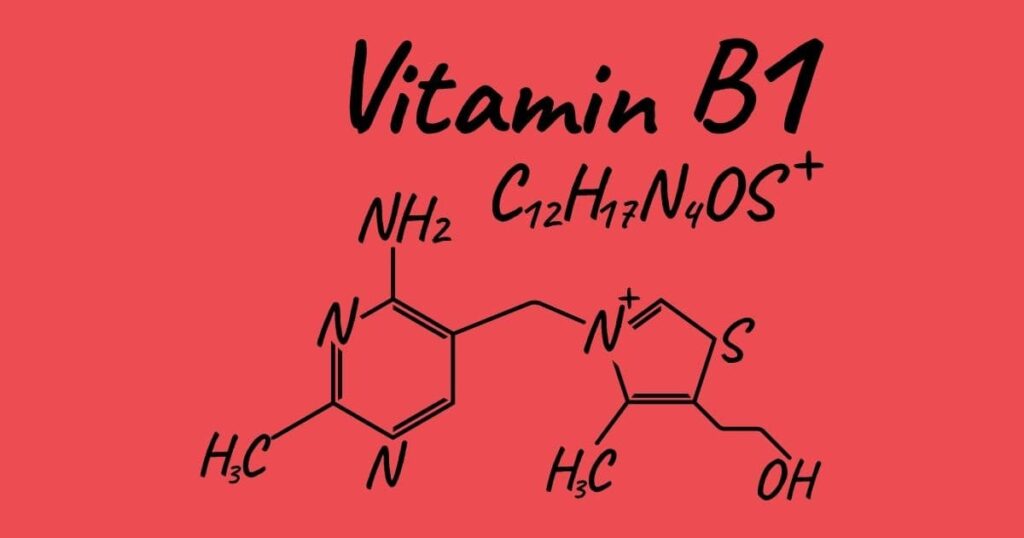Betavit 100mg Tablets: Uses, Side Effects And More
Betavit 100mg tablets is a medicine containing 100mg of vitamin B1 (thiamine hydrochloride) per capsule.
It is often used to treat Vitamin B1 Deficiency (thiamine hydrochloride deficiency).
Betavit 100mg tablets can be used in some cases to treat the following ailments upon the doctor’s recommendation:
What Will We Learn?
Beriberi
In cases where there is not enough thiamine in your diet, beriberi may occur.
The symptoms of beriberi are usually as follows:
- Blurring of consciousness, confusion
- swelling, tingling or burning sensation in feet, hands
- Difficulty in breathing due to fluid accumulation in the lungs
- Nystagmus – Uncontrolled eye movements
Wernicke-Korsakoff Syndrome
this is a brain disorder caused by thiamine deficiency.
This disease damages nerves in the central and peripheral nervous systems.
The biggest cause is malnutrition due to alcoholism.
Cataract
Scientific studies have suggested that consuming thiamine with other foods may reduce the risk of developing cataracts.
People with plenty of vitamins and proteins A, B1, B2, and B3 (or niacin) in their diet are less likely to develop cataracts.
Getting enough B complex, vitamins C, E, especially B1, B2, B9 (folic acid) and B12 can protect your eyes from developing cataracts, but more research is needed for this theory.
Alzheimer’s Disease
Vitamin B1 deficiency can cause dementia.
Scientific studies have suggested that thiamine may help Alzheimer’s disease.
Oral vitamin B1 has been found to improve cognitive function in Alzheimer’s patients.
It should be noted that thiamine absorption is poor in elderly individuals, so more research is needed before vitamin B1 can be recommended as a treatment for Alzheimer’s disease.
Heart Failure
In some cases, people with heart failure take diuretics (water pills) to help remove excess fluid from the body.
This can also cause the body to get rid of too much thiamine.
In such cases, Betavit tablets can be used with the advice of a doctor.
Depression
Low levels of vitamin B1 can cause depression.
Scientific studies in older Chinese individuals have linked people with poor thiamine (vitamin B1) levels to a higher risk of depression.
How To Use Betavit Tablets?
You can take this drug with or without food.
As with all medicines and supplements, consult your healthcare provider before giving Betavit to a child.
The usual daily dose of Betavit is 50 to 100 mg, unless your doctor tells you otherwise.
Betavit is generally safe when taken in these doses.
Using large amounts may cause stomach upset.
If you think you’re taking too much, talk to your doctor.
This medicine does not contain added sugar, gluten, salt, yeast, artificial preservatives, coloring, or sweetener.
This medicine contains lactose.

Side Effects Of Betavit Tablets
Because this medicine contains only vitamins, it usually does not pose a risk of side effects, but in very rare cases, some people may experience serious allergic reactions to certain multivitamins.
Pregnancy And Breastfeeding
The right amount of use during pregnancy and lactation will not harm the baby or you.
When you are breastfeeding, you can take Betavit tablets by talking to your doctor.
Vitamin B1 in Betavit tablets passes into breast milk, but it is not harmful to the baby, on the contrary, it is beneficial.
However, if your baby was born prematurely or has any health problems, talk to your doctor before using Betavit.
The more we learn what vitamin B1 is, the more we can understand how this drug works.
What Is Vitamin B1?

Vitamin B1, also called thiamine hydrochloride, is one of the 8 B vitamins.
The biggest task of vitamin B1 is to help the body convert food (carbohydrates) into fuel (glucose), which the body uses to produce energy.
These vitamins, also called B-complex vitamins, also help the body metabolize fats and protein.
B complex vitamins are needed for healthy skin, liver, hair and eyes.
In addition, vitamin B1 helps the nervous system to function properly and are necessary for good brain function.
This type of vitamin is water-soluble, meaning the body doesn’t store them in itself.
Like other B-complex vitamins, vitamin B1 is sometimes called the “anti-stress” vitamin because it can boost the immune system and improve the body’s ability to withstand stressful conditions.
The reason why vitamin B1 is 1 in front of my name is because it is the first B vitamin to be discovered.
Vitamin B1 is found in both animals and plants and plays a crucial role in certain metabolic reactions.
Your body needs vitamin B1 to create adenosine triphosphate (ATP), which every cell in your body uses for energy.
People with Crohn’s disease, alcoholics, and people undergoing kidney dialysis may be deficient in this vitamin, but thiamine deficiency is rare.
The symptoms of thiamine deficiency are listed below:
- Headache
- Nausea
- Burnout
- irritability
- Depression
- Abdominal discomfort
People with thiamine deficiency may have difficulty digesting carbohydrates.
This can cause a substance called pyruvic acid to build up in the bloodstream, causing difficulty breathing and heart damage, loss of mental alertness, a disease known as beriberi.
You may also notice our article on the benefits of pear.

Which Foods Have More Vitamin B1?
Vitamin B1 is found in small amounts in most foods.
The foods listed below are high in vitamin B1:
- Pork
- Steak
- Poultry
- Offal
- Rice and whole grain or enriched cereals
- Legumes
- Wheat germ
- Brewer’s yeast
- Nuts
- Molasses
Precautions
Please talk to your doctor before taking Betavit. Even if this medicine is a vitamin, it may cause some unwanted side effects in you.
Other Drugs And Betavit
If you are taking or have recently taken any of the medicines listed below, talk to your doctor before using this medicine:
- Digoxin
- Diuretics (water pills)
- Phenytoin (Dilantin)
